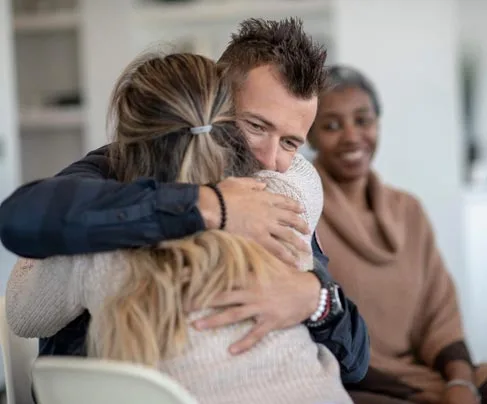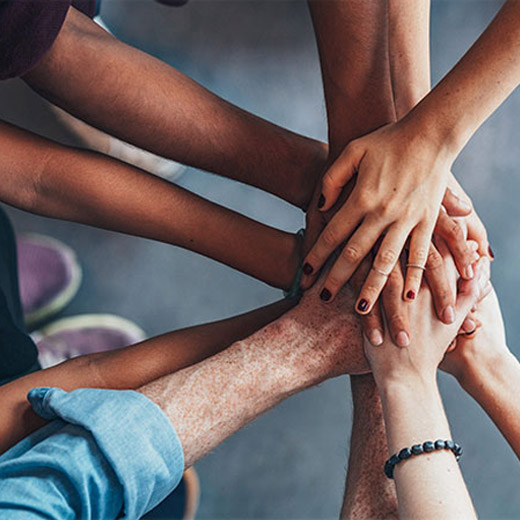It can feel so difficult when you or a loved one has a problem with alcohol or drug addiction, that you don’t know how to approach it. Even though addiction is a disease, it can be managed when evidence-based treatments are adopted. Long term addiction recovery is possible.
Learn about how sober living can be achieved if you or someone you love can apply an holistic addiction treatment method.
What is Addiction Rehab (Rehabilitation)?
Addiction ‘rehab’ is a broad term that explains the psychotherapeutic and medical treatments that are used to help people heal their dependencies on prescription drugs or illegal drugs including meth. Rehab approaches are more successful when they are personalized to your individual needs, and may include inpatient programs, outpatient programs, medical detoxes and aftercare.

Facts & Statistics about Addiction in Calaveras
Prevalence of Substance Use Disorder, by Drug Type
(IN THOUSANDS)
- 2,7578.5%Any Substance
- 2,0886.4%Alcohol
- 1,0683.3%Ilicit Drugs
- 2060.6%Pain Medication
Drug- and Alcohol-Induced Deaths by Age Group, California, 2016
- Alcohol-Induced
- Drug-Induced
- 18 to 250.5
- 9.6
- 26 to 354.3
- 13.9
- 36 to 6424.2
- 22.9
- 65+23.7
- 9.4
Drug Use, by Selected Type and Age Group California, 2015 to 2016
- 12 to 17
- 18 to 25
- 26+
- Marijuana*13.2%
- 34.0%
- 13.5%
- Misuse of Pain Medications3.5%
- 8.0%
- 4.3%
- Cocaine0.8%
- 7.2%
- 1.8%
- Heroin0%
- 0.4%
- 0.2%
What are the treatment options available in Calaveras?
An integrated solution is considered the best way to tackle and heal the underlying causes of drug addiction and alcohol addiction. Identifying coping strategies to treat the root causes of your substance misuse is just as important as treating the symptoms of addiction.

Private Residential Programs
A residential rehab program is when you live at the rehab facility and receive all your treatment within the property. Its main benefit is that you can receive holistic treatment and support day by day.
By displacing yourself from your home and living at the treatment facility you can safeguard yourself against the stressors that lead to your substance abuse. If you reside in a safe and supportive environment you can protect yourself from relapse and increase the likelihood of finishing your addiction treatment program. Residential programs are generally most effective when your drug or alcohol dependency is chronic and complex in nature, or if you struggle with co-occurring disorders or have a dual diagnosis.
Taking part in a residential treatment program is the most effective way to treat addiction, and maintaining it will require continued focus because addiction recovery is difficult during the first few months. Once you have completed your residential program you will need to become more autonomous and set new goals and challenges.
Do You Need Help?
Our addiction advisers are here to help you.

Sober Living Programs
Sober living programs are structured with the needed guidance to help people in recovery get what they want from their new life without substance dependence. They support you through:
- Round-the-clock check-ins from the house manager
- Creating guidelines to change your behavior in recovery
- Helping you to build important relationships with peers who have similar experiences to you
Detox Only Programs
Most clients will need a medical detox to initiate drug rehab, as it tackles physical dependence on substances by ridding it from your system. During the detox phase you will go through withdrawal symptoms as your body starts to function without the substance it was dependent on.
This starts the process of the recovery journey, following which you will identify and deal with the root causes of your addictive behavior to avoid repeating those same cycles. It is normal to experience withdrawal and cravings for a few weeks after the substance has been eliminated from your body.
You can reduce the risk of relapse by developing coping skills to apply to your new life.
Outpatient Programs
Outpatient programs offer greater flexibility because you can continue work commitments and live at home, but you attend the rehab facility for any treatments.
Outpatient programs assist you with:
- Education on abusing substances
- Group therapy and individual counseling as drivers for therapeutic intervention – You must be enrolled in an outpatient program for a minimum of three months, and may remain in it for longer than a year if required.
Paying for Private Treatment
If you decide to pursue private treatment, you can make a claim through your healthcare policy or pay with your own funds. Most insurance providers will contribute to at least part of the costs associated with addiction rehab, such as a medically-supervised detox, rehab treatment and medical supplies, as well as aftercare support. The amount you will be able to claim will be determined by your policy rules and your provider.
We suggest you understand how much cover you have before enrolling in a program. By visiting our Verify Your Insurance page – https://www.unitedrecoveryca.com/verify-your-insurance/, you can find out what cover you are entitled to.
If you opt out of cover from your insurance provider, you will be responsible for paying the cost of treatment yourself. Many rehab centers provide payment options to clients who cannot afford the full cost upfront.
State Funded Programs
If you have a substance use disorder but have limited funds to pay privately for it, you may search for a state-funded addiction treatment program. Assistance can be provided with funds allocated from Medicaid and federal/state budgets, state-funded programs can subsidize your recovery with:
- Medical alcohol/drug detox
- Rehab treatment and aftercare services.
State-funded treatment programs provide relief to people who reside in low income households or private healthcare policies. In order to qualify you will need to provide evidence regarding:

- Proof of residence
- Proof of your financial situation
- Medical history and details regarding your addiction issues
- Proof that you reside in the US legally
Click https://www.grants.gov/ to find out more about applying. You can also download this file – https://www.samhsa.gov/sites/default/files/single-state-agencies-directory-08232019.pdf – for your state agency’s direct contact details.
The following state-funded addiction rehab programs are available in Calaveras:
Calaveras County Behavioral Hlth Servs Substance Abuse Programs
891 Mountain Ranch Road, San Andreas, CA 95249
209-754-6555
http://substanceabuse.calaverasgov.us/Changing Echoes
7632 Pool Station Road, Angels Camp, CA 95222
209-785-3667
https://www.changingechoes.com/Gold Country Health Initiative LLC
820 and 830 State Highway 88, Jackson, CA 95642
209-257-1501
https://findtreatment.samhsa.gov/
Maintaining Addiction Recovery in Calaveras
When you leave and complete your treatment programme, you may experience some challenges. The rehab environment was controlled and safe, and you were given professional support. When you leave, you may encounter new challenges or triggers that test your coping skills in ways you may not have anticipated.
If you experienced a severe dependency and have not developed a social structure to return to when you leave rehab, you may find long term recovery more of a challenge. Relapse can occur when you don’t have aftercare to support you in your new-found sobriety.
The following AA/NA meetings are available in Calaveras:
AA - 49er Group Friday Evening Discussion
Open, Smoking Permitted and Discussion:
1141 South Main Street, Angels Camp, CA, 95222
Friday: 7:00 pm – 8:00 pm
https://alcoholicsanonymous.com/AA - Changing Echoes Sunday Evening Discussion
Open Discussion:
7632 Pool Station Road, Angels Camp, CA, 95222
Sunday: 7:30 pm – 8:30 pm
https://alcoholicsanonymous.com/Union Congregational Hall – Angels Camp
Open and Speaker:
1141 South Main Street, Angels Camp, CA, 95222
Tuesday: 7:00 PM
https://findrecovery.com/
Aftercare & Alumni Programs
Aftercare programs extend your rehab program once you return to your daily life. By participating in extended support, you can reduce the risk of relapse which hurts as many as 60% of clients who have recently finished treatment. It is an essential service provided by most treatment centres.

When your program is close to completion, we will help identify the therapies and counseling most helpful for your long-term recovery and the appropriate aftercare provisions will be created to assist you. After finishing your addiction treatment program you will become eligible for joining an alumni community program so you can stay close to staff and peers. You will have access to mentorship and support from other people in recovery, and also take part in other Alumni events. You will also have the opportunity to reciprocate in the program by supporting other people if you like.
Support Groups (Fellowship Meetings)
Attending in support groups is key because social structures enable long-lasting addiction recovery. To maintain addiction recovery, will receive long-term recovery support if you take part in groups like Narcotics Anonymous or Alcoholics Anonymous go to any 12-step meetings.
You will benefit from other people’s experiences and share your own at support group meetings. Friendship, empowerment and taking responsibility for our actions are key to long-term recovery, and support groups provide many with the necessary tools to stay sober.
Support for Families & Children Affected by Addiction
Some people in an addicted household are affected more than others. The person with the dependency needs help, but other members of the family need support and guidance too.
Family support groups provide you and your loved ones with effective coping tools for your own life and help you to offer greater support to the loved one who has issues with substance dependence.
Your family can benefit from support groups such as:
- Parents of Addicted Loved Ones
- SMART Recovery Family & Friends
- NAMI Family Support Groups
- Al-Anon
- Families Anonymous
- Alateen
- Nar-Anon










